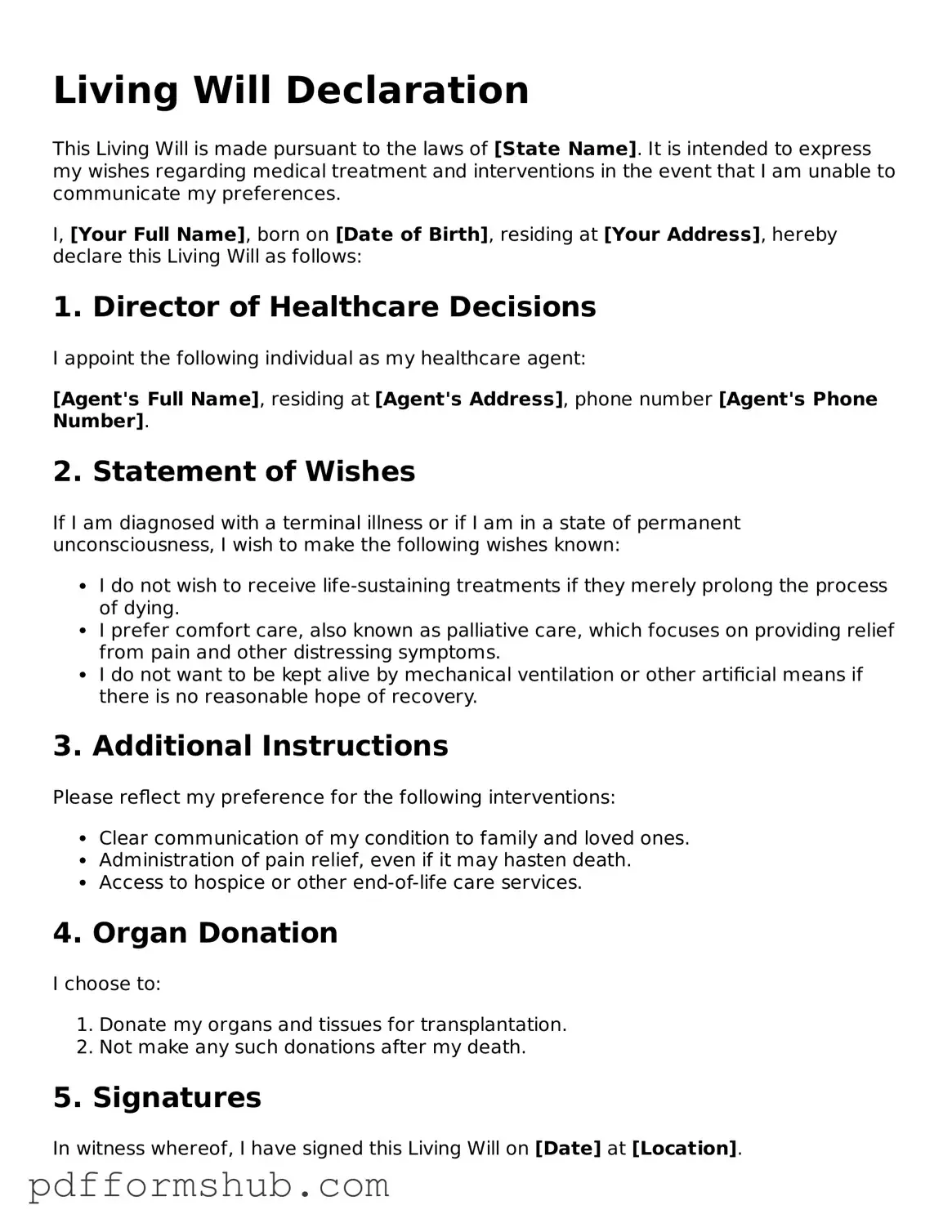Valid Living Will Form
A Living Will is a legal document that outlines an individual's preferences regarding medical treatment in the event they become unable to communicate their wishes. This essential form allows individuals to express their desires concerning life-sustaining measures and other healthcare decisions. Understanding the importance of a Living Will can empower you to make informed choices about your future healthcare; consider filling out the form by clicking the button below.
Customize Form

Valid Living Will Form
Customize Form

Customize Form
or
Free PDF Form
Short deadline? Complete this form now
Complete Living Will online without printing hassles.